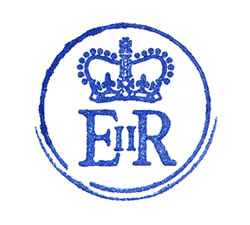 What do we already know?
What do we already know?
We updated you in our May 2015 Newsletter Government reforms: Into the future – conservative party plans for hr/employment law on the Conservative party’s manifesto promises which impacted on HR/employee relations.
What’s new?
The new Government has now announced in the Queen’s Speech plans to implement many of its manifesto promises in the form of the following new laws:
- European Union Referendum Bill: The EU Referendum Bill will provide for an in-out referendum on membership of the European Union (EU) before the end of 2017. In addition the Government plans to renegotiate the UK’s relationship with the EU and pursue reform of the EU for the benefit of all member states.
Given that much of our UK HR/employment law comes from the EU this Bill is probably the most significant change under the new Conservative Government.
- British Bill of Rights: The Queen’s Speech refers to the Government bringing forward proposals for a British Bill of Rights to replace the Human Rights Act 1998. No further detail is given in the speech as to when legislation will be brought in to implement this.
- Trade Unions Bill: Significant changes to the existing rules on industrial action to ‘protect essential public services from disruption caused by strikes’, by introducing the following provisions:
- minimum voting threshold for a lawful ballot, 50% or more must vote in all ballots, additionally, in essential services (health, transport, fire and education), 40% of all eligible voters must vote in favour of strikes;
- new rules to restrict picketing – prevention of intimidation of non-striking workers during a strike;
- a time limit after a ballot within which the strike action must take place;
- transparent opt-in process for the political fund element of trade union subscriptions (as is in practice in Northern Ireland); and
- changes to the role of Certification Officer.
There is no mention of removing the ban on employers using agency workers to cover striking employees, which was in the Conservative election manifesto.
- National minimum wage (NMW): The Government will ensure that future increases to the personal income tax allowance are linked to changes to the NMW. This will ensure that people working 30 hours a week on the NMW will not pay income tax.
- Childcare Bill: The Government wants to help working people through the Childcare Bill, which will increase the provision of free childcare for eligible working parents of children aged three and four years old to 30 hours a week (for 38 weeks of the year).
- Migrant Workers: Introduce “tougher labour market regulation” to tackle illegal working and exploitation through the Immigration Bill to include:
- Illegal working will be made a criminal offence, allowing wages paid to illegal migrants to be seized as proceeds of crime;
- Creation of a new enforcement agency with powers to take action against employers who exploit migrant workers; and
- It will be illegal for employment agencies to only recruit from abroad without advertising those jobs in Britain.
- Enterprise Bill: this will introduce:
- measures to reduce regulation on small businesses to help create more jobs; and
- a cap on exit payments/enhanced redundancy payments made to public sector workers to end six-figure payoffs.
- Full Employment and Welfare Benefits Bill: The Government plans to create three million new apprenticeships over the next five years. This Bill will introduce statutory duties on ministers to report annually on progress towards:
- achieving full employment; and
- meeting the target of three million new apprenticeships.
- Extremism Bill: As part of its commitment to defeat extremism, this Bill will introduce a number of measures including the ability for employers to check whether an individual is an extremist and bar them from working with children.
 What do we already know?
What do we already know?